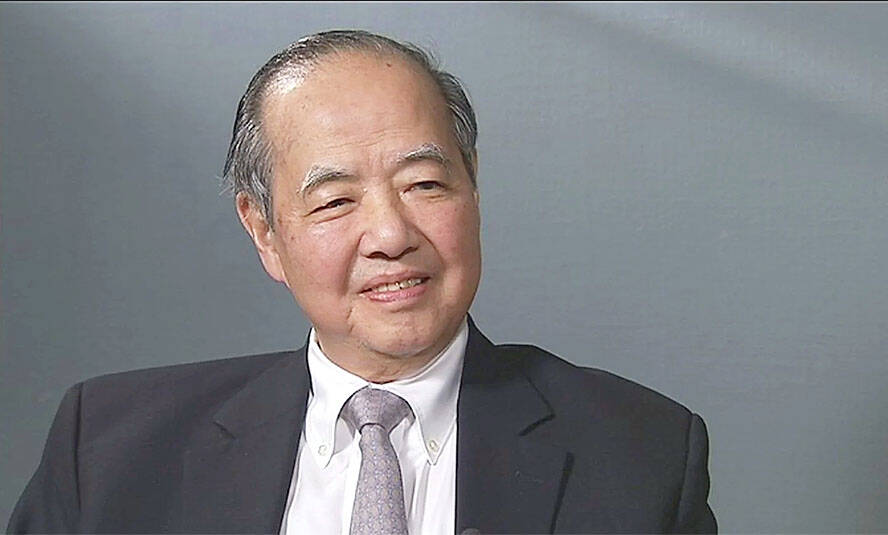Chinese-American physicist Tsung-Dao Lee, who in 1957 became the second-youngest scientist to receive a Nobel Prize, died Sunday at his home in San Francisco at age 97, according to a Chinese university and a research center.
Lee, whose work advanced the understanding of particle physics, was one of the great masters in the field, according to a joint obituary released Monday by the Tsung-Dao Lee Institute at Shanghai Jiao Tong University and the Beijing-based China Center for Advanced Science and Technology.
Lee, a naturalized U.S. citizen since 1962, was also a professor emeritus at Columbia University in New York.

Photo: grab from Nobel Web
Robert Oppenheimer, known as the father of the atomic bomb, once praised Lee as one of the most brilliant theoretical physicists of the time, whose work showed “remarkable freshness, versatility and style.”
Lee was born in Shanghai on Nov. 24, 1926, the third of six children to a merchant father, Tsing-Kong Lee, and a mother, Ming-Chang Chang, who was a devout Catholic, according to local newspaper Wenhui Daily.
He went to high school in Shanghai and attended National Chekiang University in Guizhou province and National Southwest Associated University in Kunming in Yunnan province.
After his sophomore year, he received a scholarship from the Chinese government to attend graduate school in the United States.
Between 1946 and 1950, he studied at the University of Chicago under Enrico Fermi, a Nobel laureate in physics.
In the early 1950s, Lee worked at the Yerkes Observatory in Wisconsin, at the University of California at Berkeley and at the Institute for Advanced Study in Princeton, N.J.
His research in elementary particles, statistical mechanics, astrophysics and field theory, among others, was standing out.
In 1953, he joined Columbia University as an assistant professor. Three years later, at age 29, he became the youngest-ever full professor there. He developed a model for studying various quantum phenomena known as the “Lee model.”
In 1957, Lee was awarded the Nobel Prize in physics together with Chen-Ning Yang for work exploring the symmetry of subatomic particles as they interact with the force that holds atoms together. At 31, Lee was the second-youngest scientist to receive the distinction.
He won many other accolades including the Albert Einstein Award in Science, the Galileo Galilei Medal and the G. Bude Medal, as well as honorary doctorates and titles from organizations around the world.
As China became more open to international exchanges in the 1970s, Lee returned to his home country on repeated visits to give lectures and encourage the development of sciences, according to state media.
On Monday, the topic of his death was trending on social media platform Weibo. Some users remarked on Lee’s American citizenship, while others honored his Chinese roots. China does not recognize dual citizenship.
One Weibo user praised Lee for helping to advance Chinese education and providing a role model for younger generations.

A year-long renovation of Taipei’s Bangka Park (艋舺公園) began yesterday, as city workers fenced off the site and cleared out belongings left by homeless residents who had been living there. Despite protests from displaced residents, a city official defended the government’s relocation efforts, saying transitional housing has been offered. The renovation of the park in Taipei’s Wanhua District (萬華), near Longshan Temple (龍山寺), began at 9am yesterday, as about 20 homeless people packed their belongings and left after being asked to move by city personnel. Among them was a 90-year-old woman surnamed Wang (王), who last week said that she had no plans

TO BE APPEALED: The environment ministry said coal reduction goals had to be reached within two months, which was against the principle of legitimate expectation The Taipei High Administrative Court on Thursday ruled in favor of the Taichung Environmental Protection Bureau in its administrative litigation against the Ministry of Environment for the rescission of a NT$18 million fine (US$609,570) imposed by the bureau on the Taichung Power Plant in 2019 for alleged excess coal power generation. The bureau in November 2019 revised what it said was a “slip of the pen” in the text of the operating permit granted to the plant — which is run by Taiwan Power Co (Taipower) — in October 2017. The permit originally read: “reduce coal use by 40 percent from Jan.

China might accelerate its strategic actions toward Taiwan, the South China Sea and across the first island chain, after the US officially entered a military conflict with Iran, as Beijing would perceive Washington as incapable of fighting a two-front war, a military expert said yesterday. The US’ ongoing conflict with Iran is not merely an act of retaliation or a “delaying tactic,” but a strategic military campaign aimed at dismantling Tehran’s nuclear capabilities and reshaping the regional order in the Middle East, said National Defense University distinguished adjunct lecturer Holmes Liao (廖宏祥), former McDonnell Douglas Aerospace representative in Taiwan. If

‘SPEY’ REACTION: Beijing said its Eastern Theater Command ‘organized troops to monitor and guard the entire process’ of a Taiwan Strait transit China sent 74 warplanes toward Taiwan between late Thursday and early yesterday, 61 of which crossed the median line in the Taiwan Strait. It was not clear why so many planes were scrambled, said the Ministry of National Defense, which tabulated the flights. The aircraft were sent in two separate tranches, the ministry said. The Ministry of Foreign Affairs on Thursday “confirmed and welcomed” a transit by the British Royal Navy’s HMS Spey, a River-class offshore patrol vessel, through the Taiwan Strait a day earlier. The ship’s transit “once again [reaffirmed the Strait’s] status as international waters,” the foreign ministry said. “Such transits by